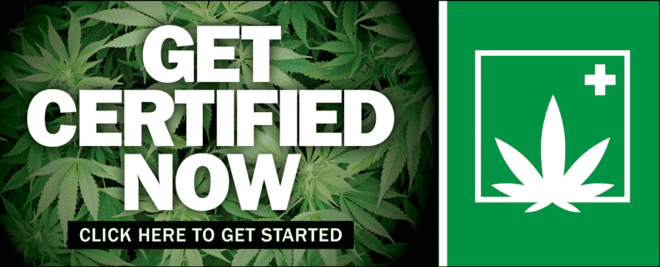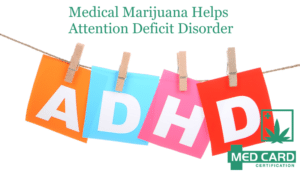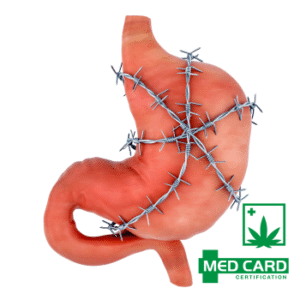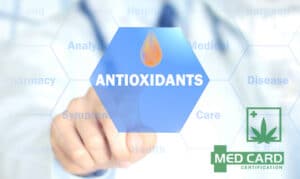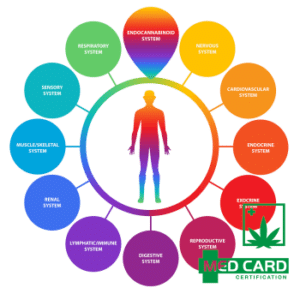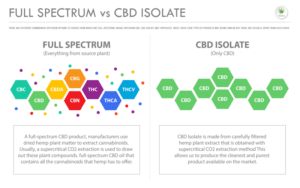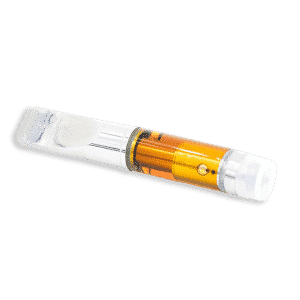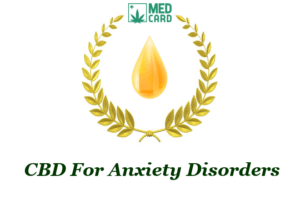
Cannabis Delivery Methods
- Cannabis medicines come in a wide array of delivery options and formulas.
- Which delivery method is ideal depends on several factors.
- Each cannabis delivery method offers pros and cons.
Let’s talk about cannabis delivery methods. The term “delivery method” refers to the mechanism being used to deliver a dose of medicine. Interestingly, cannabis comes in a wide array of delivery methods — dried flower, concentrates, oils, tinctures, capsules, edibles, beverages, topicals, patches, inhalers, and suppositories. (You can click on those links for a deeper dive into any particular cannabis delivery method.
Because cannabis offers such a wide choice of delivery methods and formulations, determining the pros and cons of each as they pertain to you often requires diligence. Patients should discuss their options with a qualified medical marijuana doctor or knowledgeable budtender at a nearby marijuana dispensary.
Cannabis delivery method considerations
Several different factors need to be considered when determining which cannabis delivery method is ideal for you. These considerations especially include your lifestyle, the reasons you’re using cannabis, and whether you’re using products produced from medical marijuana or its non-intoxicating analog, CBD-rich hemp.
Products made from medical marijuana contain THC — an intoxicating cannabinoid compound. Marijuana products are only legal in certain states and may require the patient to be over the age of 21 or to apply for a medical marijuana card. Products produced from hemp are legal nationwide. Hemp is essentially devoid of THC, but high in the nonintoxicating cannabinoid, CBD. Anyone can buy CBD products online without a medical marijuana card.
Some cannabis products are more convenient than others. Some travel better than others. Some may simply be more enjoyable to the user than others. For example, a dabbing rig might be more enjoyable to some users, but dab rigs aren’t especially portable or discreet. Capsules, edibles, and even vape pens are more discreet.
Some delivery methods are better for particular medical conditions. For example, topicals are most often used to treat skin conditions. And digestive conditions are best treated with edibles. These methods deliver cannabinoids directly to the affected area.
Also, different cannabis delivery methods have different onset times. Some take effect faster than others. Edibles can take upwards of an hour or more to take effect.
For patients dealing with sudden onset conditions such as panic attacks, a faster onset time is more desirable. The effects of smoking and vaping are virtually instantaneous. For trying to get a good night’s sleep, a longer onset time is more acceptable.
Bioavailability is another factor to consider. Bioavailability refers to the percentage of the cannabinoids that will make their way into the bloodstream. Smoking and vaping offer high bioavailability, while edibles and topicals offer much lower bioavailability.
And finally, the formulation — the cannabinoids and other ingredients added to the product — is of utmost importance.
Let’s look more deeply at some of these various cannabinoid delivery methods.
Cannabis Oils and Tinctures
Cannabis oils come in almost an endless array of formulas. They include everything from raw hemp extract, to more refined products, on up to purified cannabinoid isolates.
Some cannabis oil products are formulated to treat a certain condition and might also contain ingredients such as terpenes, essential oils, vitamins, and so on. For example, some CBD oils include melatonin, a hormone that helps with sleep.
In addition to cannabis oils, there are also alcohol-based tinctures. Oils can be used orally and sublingually (under the tongue). Alcohol-based tinctures offer a faster onset time when used sublingually.
Tinctures generally come in a dropper bottle for accurate dosing. They are commonly used at home in the morning and the evening, but can also be used during the day at school or work.
- Pros of cannabis oils and tinctures
Oils and tinctures offer relatively fast onset time and higher bioavailability than edibles. This makes them a better choice than edibles when treating conditions such as anxiety.
- Cons of cannabis oils and tinctures
The downside of tinctures and oils is that they can be messy if you’re trying to use them on the go. When considering a product to take hiking, for example, tinctures are definitely not your best choice.
Cannabis Oil Capsules and Pills
Cannabis oil capsules and pills are generally taken orally. Capsules are made with gelatin that melts within minutes delivering the entire dosage to the stomach. On the other hand, when taken with food, some of the cannabinoids will make their way through the rest of the digestive system.
There are two types of cannabis oil capsules. There are standard medicine capsules and there are gel caps. Standard capsules have a plastic-like shell and are usually filled with powdered cannabinoids. Soft gel caps have a more rubber consistency and are filled with an oil-based product.
- Pros of cannabis oil capsules
Capsules are convenient and easy to use. They also facilitate exact dosing.
- Cons of cannabis oil capsules
Cannabis oil capsules have a longer onset time than tinctures. They’re not a good choice for sudden-onset symptoms. They offer a lower bioavailability than inhalation methods.
Cannabis-Infused Edibles and Beverages
Just about any type of food or liquid can be infused with cannabinoids including candies, baked goods, sauces, beverages, and such. We’ve already discussed the fact that edibles are ideal for conditions of the stomach and intestines as well as for sleep disorders.
And again, the onset time and bioavailability of edibles depend on the type of product and whether or not it is taken on an empty stomach.
When using cannabis to treat stomach issues, cannabinoid-infused candies are a good choice. And if you’re trying to treat a condition of the intestines baked goods such as brownies and cookies are a better choice.
Pros of cannabis-infused edibles
Edibles are highly portable making them a great choice for work, school, hiking, sports, and so on. (But don’t leave a jar of cannabis gummies in a hot car.) For stomach conditions, the amount delivered directly to the stomach may be higher than with other methods.
Cons of cannabis-infused edibles
Edibles offer lower bioavailability and slower onset time than tinctures and inhalation methods. Edibles are not a good choice if fast results are desired.
Cannabis-Infused Beverages
Cannabis-infused beverages are often made with a water-soluble preparation of cannabis oil. For the most part, they offer the same effects and have the same uses as edibles.
- Pros of cannabis-infused beverages
Cannabis-infused beverages offer a faster onset time than baked goods.
- Cons of cannabis-infused beverages
Although cannabis-infused beverages are convenient for home or office use, they’re heavier and bulkier than edibles and capsules. Also, cannabis beverages are often overpriced compared to simply taking a capsule along with a normal beverage.
Cannabis-Infused Topicals
Cannabis-infused topicals come in a wide variety including cannabis skin creams, balms, salves, ointments, and so on. These products are often infused with purified cannabinoids which are odorless. But they are also formulated with full-spectrum cannabis oil which can contain numerous beneficial cannabinoids and terpenes but have a distinct “green” odor.
Topical preparations include skincare products such as moisturizers, muscle and pain creams, salves, and ointments targeted at skin conditions like itching and rashes.
Skin creams may contain moisturizers, vitamin E, collagen, and other beneficial ingredients. Pain creams may contain ingredients meant to help the product penetrate deeper into tissues such as menthol. Salves often contain soothing and healing ingredients such as aloe. It’s important to choose the right product for the application.
- Pros of cannabis-infused topicals
Cannabis-infused topicals deliver cannabinoids directly to the affected area.
- Cons of cannabis-infused topicals
Topicals take time to apply and can be messy. They offer low bioavailability and are limited to external use only.
Inhalation Methods
Several different devices can be used for the inhalation of cannabinoids. This includes smoking, vaping, dabbing, and nebulizers.
Vaporizers are made for use with dried flower, oils, and concentrates. Dabbing involves smoking or vaporizing potent cannabis concentrates. Nebulizers (often referred to as inhalers) convert a solution containing cannabinoids into a mist or cloud. And both cannabis flower and cannabis concentrates can be smoked.
- Pros of cannabis inhalation methods
Inhalation offers the fastest onset time and highest bioavailability. These methods are ideal for sudden-onset symptoms such as PTSD panic attacks. Nebulizers offer a measured dosage.
- Cons of cannabis inhalation methods
Smoking, vaping, and dabbing can damage the lungs. Smoking and dabbing rigs aren’t very portable. Vape oils often contain ingredients that can cause asthma.
Transdermal Cannabis Patches
Transdermal patches are designed to provide a constant and consistent supply of cannabinoids over an extended period of time. Transdermal simply means “through the skin.”
Transdermal patches adhere to the skin. They contain a cannabis-infused preparation that is absorbed into the bloodstream via the skin over time. The bioavailability and onset time of cannabis patches can vary greatly depending on their formulation.
- Pros of transdermal cannabis patches
Transdermal cannabis patches deliver a steady supply of cannabinoids. No other delivery method offers this benefit. Patches are also discreet and easy to use.
- Cons of transdermal cannabis patches
Transdermal cannabis patches are generally made with purified cannabinoids and are not a full-spectrum products. Transdermal patches can be costly.
Cannabis Suppositories
Cannabis suppositories are used rectally. Although they aren’t especially convenient to use, they do offer specific benefits. They generally contain purified cannabinoids but can also be produced using full-spectrum oils.
The entire contents of suppositories are delivered into the bowel making them ideal for treating conditions such as irritable bowel syndrome and inflammatory bowel disease.
- Pros of cannabis suppositories
Suppositories offer higher bioavailability than edibles and are better for conditions of the bowel.
- Cons of cannabis suppositories
Suppositories are not the most convenient delivery method. Their application can be messy.

Sign Up for Medical Cannabis Today!
For potential patients, if you’re ready, we make it easy to connect with a medical marijuana doctor nearby or online. If you are interested in getting certified, please fill out the MMJ patient registration form below and press submit to get started. See if you qualify today!

MedCard Registration Form



